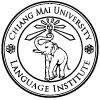2010-04-28 - Eileen Edwards
We’re here --We’re settled--What now?--Teaching in Thailand?
The culture shock’s fading, you know your way around town, you’ve set everything up according to your dreams, you’ve made new friends and discovered new activities –what now? Maybe you’re getting just slightly bored, if you’re a retiree the high baht may be affecting your monthly pension, maybe you just want a challenge, or maybe you’d decided in the planning stages of your move to find some work once you were settled. Or maybe, you’ve arrived by chance, and decided to stay!
Many expats who fit into the above categories will decide that they might try teaching English, either in a local school, at a commercial language establishment, or privately. After all, didn’t you read all about teaching in Thailand on the internet, and didn’t it sound easy, fun, and remunerative! That’s if you consider that an average of 20,000 baht per month is remunerative enough – even now, it should be!
Unfortunately, as with everything you read on the internet, it’s difficult to determine information from disinformation, and even more difficult to connect with both sides of the story. Yes, there are teaching jobs for native English speakers here in Chiang Mai-- although not nearly as many as there used to be--and yes, the experience is nothing like the experience of teaching in the West! So, the rest of this article will concern the realities. Whilst reading, please remember that 'This is Thailand!'
Up to two or three years ago it seemed comparatively easy to walk into a teaching job with just a basic Teaching English as a Foreign Language, (TEFL), certificate, obtained by taking a Thai Ministry of Education - approved four-week TEFL course at an approved language school with approved instructors. But –which TEFL course at which school? And, importantly, what’s an ‘approved TEFL course’?
Now back to basics! There are many TEFL course available in Chiang Mai, mostly from small institutions owned and run by expats. Some are franchises, some are independent, and charges for the course are similar across the board. So, what’s the best bang for your bucks? And, as a new arrival, how do you tell the spin from the reality?
A Google search reveals websites with headings such as ‘ Welcome to Paradise’, ‘Guaranteed Job Placement’, ‘Exciting Excursions’, ‘Internationally Recognised’, etc, etc. What is rarely mentioned is the requirement by the majority of Thai schools for a basic degree as well as a TEFL qualification, the thorny problem of visa compliance, and the realities of actually finding and keeping a worthwhile job which actually pays! The essential teaching practice, and the teaching of the course itself, can also be of variable quality. Advisory websites for foreign teachers in Thailand tell tales of woe based on hands-on experience.
So, what’s a guy to do? This is where common sense kicks in, as there is one famous institution in Chiang Mai which covers all needs, from its own accreditation with the Thai Ministry of Education through the high quality of its teaching, to job placement, to essential visa advice and assistance and, most importantly, to telling it like it is! If you haven’t guessed already, the way to go is to Chiang Mai University’s Language Institute.
The Chiang Mai University (CMU) Language Institute’s TEFL course comprises all the practical skills needed, plus hands-on teaching practice in Thai schools from the very first week of the four week course, so that everything learned can be immediately put into practice. Assistance with finding a suitable placement is backed by the respect the city’s educational institutions have for the University and its graduates in all fields.
Most importantly, a three-month Education Visa is provided as part of the CMU Language Institute’s TEFL package, and if their challenging and enjoyable one-year Thai Language course is taken at the same time, the visa (obviously) will be for a full year. Chiang Mai University is highly regarded in Thailand, thus negating any problems which might occur in this, at present, somewhat sensitive area, giving participants a sense of security they might not feel elsewhere.
An interesting add-on for those who, once they have their TEFL qualification from the CMU Language Institute, feel that they would like to teach where it’s truly needed is the Institute’s Cultural Exchange Programme. This new and popular service can arrange placements in orphanages, ethnic minority schools and suchlike, in and around Chiang Mai city and province. Many children in rural districts don’t get the chance to learn English, or even to receive a secondary education, as government grants are too low for the schools to employ specialist teachers.
Although ‘volunteering’ legally requires a difficult-to-obtain work permit, participants in the CMU Language Institute’s Cultural Exchange Programme are also covered by a one-year Education Visa. For further information on any of the Chiang Mai University Language Institute’s programmes, please visit their website at www.teflcmu.com. You’ll be glad you did!
Subscribe to:
Post Comments (Atom)

No comments:
Post a Comment